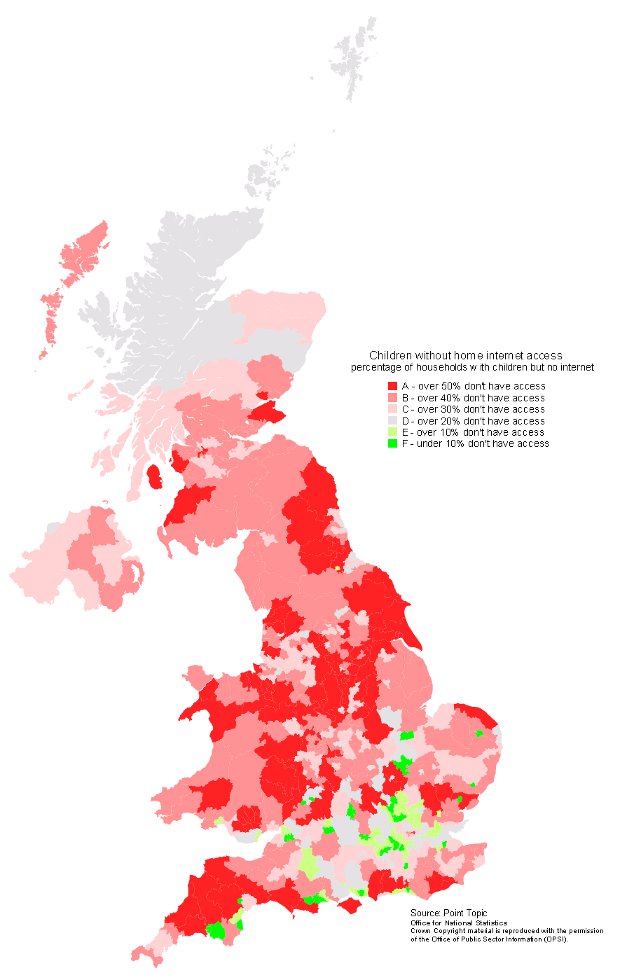Millions of UK children lack home broadband

More than a third of British families with children do not have broadband access at home, potentially putting four million children at a financial and educational disadvantage, according to a new report.
The report, released on Wednesday, suggests that of those families, about two million choose not to subscribe to broadband in areas where a reasonably good service is available. A poor selection of ISPs and a high overall cost were the determining factors for those families choosing to stay offline, according to analyst firm Point Topic, which released the report.
"One of the reasons they're not trying [broadband] is because they're unable to afford it," Point Topic founder Tim Johnson told ZDNet UK on Thursday.
In addition, Point Topic estimated that 40,000 families with children live in areas where no fixed broadband service is provided. Another 1.4 million are in places where only slow broadband — with reliable speeds of less than 2Mbps — is on offer.
The locations with the poorest broadband adoption for families with children are countryside towns and cities where industry has collapsed, according to Point Topic. It named north-east Derbyshire, Aldridge-Brownhills and the valleys of south Wales as examples.
Johnson said he believes a lack of broadband in the home has both a financial and a social cost for affected children. Children without home broadband will earn less income when they enter the workplace, according to the report. It estimated that the eventual loss of earnings to the UK economy could be as high as £80bn a year.
The report also highlighted the difficulty children without home broadband can have in socialising with their peers in an increasingly digital world.
"Unless they leave the house, [children] can't do their homework properly; they can't join in the social world of their peers; and they can't gain the internet skills and knowledge they will need to live comfortably as adults," the report stated.
The government has introduced efforts to get low-income families online. In January, it launched a £30m Home Access scheme to provide free internet-connected laptops to disadvantaged children, providing a grant of up to £528 for families to spend with high-street computing and broadband providers.
In addition, it has set up the National Digital Participation plan, which is targeting the 12.5 million people that are currently offline and aiming to get them online by March 2014. A separate initiative — led by UK digital inclusion champion Martha Lane Fox — has the goal of getting as many people as possible online by the London Olympics in 2012.
Some schools are taking a more direct approach to providing e-learning resources to children. Broad Oak Sports College, a state secondary school in Bury, has provided a £140,000 Wi-Fi mesh network to give free internet access to 1,000 pupils.
The government already has plans to provide better broadband coverage across the country, and has pledged to provide super-fast broadband to the entire UK. Other major political parties have similar pledges.
Point Topic builds its model of broadband usage and adoption in the UK from public data, such as census information, and from datasets it generates from Ofcom statistics, BT figures and similar broadband industry data.

A map showing the regional percentage of children without home internet access within the UK Credit: Point Topic